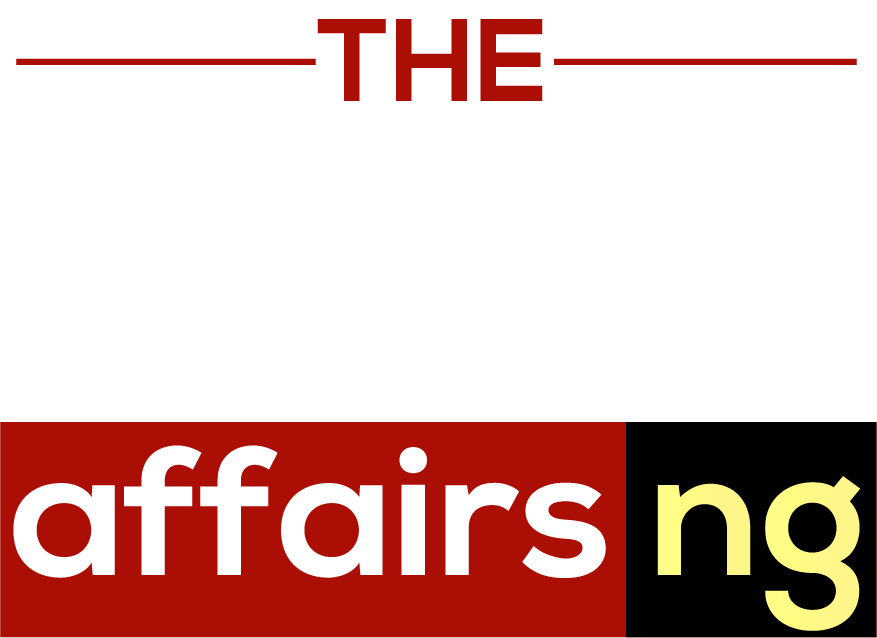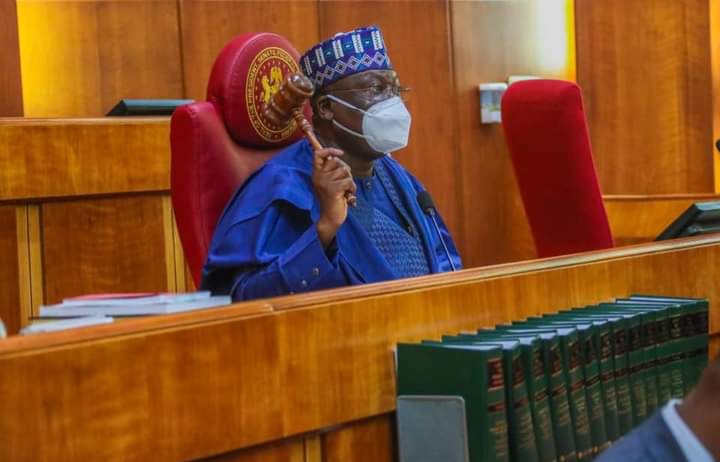The office of the Auditor- General for the Federation (AuGF) in its 2019 Annual Audit Report has indicted the management of the National Assembly over how it spent funds running into billions of naira.
The AGF, Aghughu Adolphus, in the audit queries uncovered how over N8.5 billion from the funds released to the National Assembly were expended within the period under review without evidence.
The report, submitted to the Clerk to the National Assembly in August this year as required by the constitution, said the monies under scrutiny were not backed by vouchers and retirement documents.
The audit report uncovered various infractions by the House of Representatives, the Senate and the National Assembly Service Commission. The audit report is usually submitted to the National Assembly Public Accounts committees for investigation.
Daily Trust reports that for over a year, the Senate Public Accounts Committee has been investigating expenditures of federal government agencies from 2015 – 2018 based on a report by the Auditor- General for the Federation.
In June this year, the panel presented the report of its six months investigation on the Federation Account for the year 2015 to the plenary.
The committee’s Chairman, Senator Matthew Urhoghide (PDP, Edo), in his presentation, disclosed that 114 MDAs were queried in the 2015 audit report, out of which 59 had their queries sustained after the probe.
In the course of the investigation, Urhoghide said his panel observed across board, the incessant violation of extant rules by MDAs.
On several occasions, Senate President Ahmad Lawan and Senator Urhoghide had threatened erring MDAs with zero budgetary allocation.
However, the panel did not make public its findings on the audit queries raised against the spending of the National Assembly management, which manages the finances of the federal parliament.
Senate President Ahmad Lawan and Speaker Femi Gbajabiamila
Issues in Senate
The Auditor General’s report raised seven queries against the Senate’s financial records on issues bordering on unaudited payment vouchers, non-remittance of Value-Added Tax (VAT) and withholding tax (WHT) and non-remittance of recovered vehicle loans, among others.
The alleged financial infraction, according to the report, amounted to over three billion naira.
It said the sum of N219.6 million and N123.3 million as housing and vehicle loans, respectively, were deducted from senators’ salary arrears between July and December 2019.
In another query, the audit report said N176.2 million was deducted as Pay As You Earn (PAYE) from staff salaries; Value Added Tax (VAT) of N39.7 million from payment for services and withholding Tax (WHT) of N237.6 million from payment for services.
It, however, said there was no evidence to show that these amounts were remitted to the treasury and relevant tax authorities as required by law.
The report also said the sum of N1.7 billion was paid between February and December 2019 for the supply of vehicles and other office equipment through 17 payment vouchers but none of them was made available for audit examination.
According to the report, the sum of N657.7 million was paid for the supply of motor vehicles, motorcycles and other office equipment through 16 payment vouchers between July and December 2019.
None of the payment vouchers, it said, was cleared by the Internal Audit before pay as required by extant regulations.
The sum of N423 million was paid for the supply of utility vehicles and production of the National Assembly logo between August and November 2019 from the capital account, the audit report showed.
It added that no relevant supporting documents were attached to the payment vouchers to facilitate the validation of the payment.
Similarly, the audit report queried the National Assembly Service Commission on issues related to unretired cash advances and non-remittance of 1% stamp duty on contracts, to the tune of N33.6 million.
It said the sum of N31.9 million was granted as personal cash advances to fifty-nine (59) staff and that there was no evidence of the retirement of the advances.
It also observed that N276.7 million from 12 payments vouchers was made to contractors and service providers from the project account of the Commission. It, however, said N2.7 million representing 1% Stamp Duties was not deducted.
House of Reps
In the report relating to the House of Representatives, the Auditor-General uncovered how members spent over N5.5 billion at a different point in time but could not be accounted for.
According to the report, the expenditures ranged from running costs of some lawmakers to repairs and maintenance.
The report equally revealed that payments were made from salary accounts of the House of Representatives without payment vouchers as required by law.
The Auditor-General issued five queries to the Clerk to the National Assembly on infractions bordering on the utilisation of funds running into billions of naira.
In issue 1, the audit report observed the sum of N2,550,000,000 was granted to members as running costs between July and December 2019, but that there was no evidence to show what the funds were used for as there were no retirement documents despite requests.
According to the report, the said payments were made on a regional basis thus; North East – N187 million, South South – N272 million and South East – N442 million.
Others are North Central – N391 million, South West – N629 million and North West – N629 million.
“There was no evidence to show what the funds were used for and there were no retirement documents despite requests.
“The above anomalies could be attributed to weaknesses in the internal control system at the Federal House of Representatives of the National Assembly,” the report read.
The audit report directed the Clerk to the National Assembly to give reasons why running costs granted to members were not retired.
In the second issue, the report queried the Clerk over non-retirement of N258 million, which was granted as advances to 59 staff in the lower chamber of the National Assembly.
It also said that additional advances were granted to officers when they had not retired the previous ones.
The Auditor-General in the third issue queried cash advances amounting to N107.9 million granted for repairs and maintenance of unspecified quarters beyond the statutory limit.
It queried the granting of advances in excesses of N200,000 stipulated by extant laws and directed the Clerk to justify the action.
The report in its issue 4, queried the remittance of N1.5 billion without acknowledgement as required by extant laws.
According to the report, the sum of N1.5 was paid to revenue authorities between February and December 2019.
The report said the payment included “Pay As You Earn (PAYE) from six members, car loan recovery from five members, and housing loan recovered from six members.
The audit report also revealed that another N1.01 billion was discovered to have been paid from a salary account. The payments were made without the preparation of payment vouchers as required by extant regulations.
According to the report, this violates Paragraph 601 of the Financial Regulations, which says “All payment entries in the cash book/ account shall be vouched for on one of the prescribed treasury forms.
N/Assembly reacts
Reacting, spokesman of the Clerk to the National Assembly (CNA), Austen Adesoro, who spoke to our reporter on telephone about the allegations, said the report was 2019 findings and that most of the issues have been taken care of.
Speaking on the matter, the Executive Director, Civil Society Legislative Advocacy Centre (CISLAC) and Coordinator, Transparency International (TI) in Nigeria, Auwal Musa Rafsanjani, told Daily Trust that the development was unfortunate.
“It is unfortunate that the federal government, which claims to be fighting corruption its major governmental institutions are not complying with the laws of the federation to fighting corruption.
“The sad aspect of it is that the lawmakers that are supposed to be ensuring that the laws, regulations and policies of the government are adhered to are the ones not complying with the laws that they formulate for the nation.”
He said that there was no way the government could fight corruption when its major institutions appeared not to be in tandem with what they were doing to other agencies.

